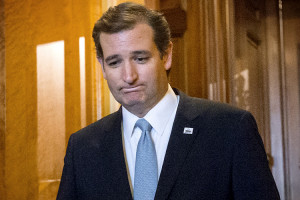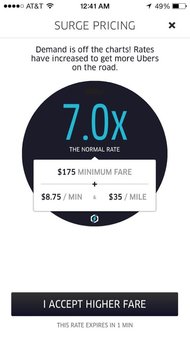Charlie Hebdo: on “hate crimes” and blaming the victim
Political CorrectnessFew people outside of jihadist circles have any reaction besides horror and condemnation for the January 7th attacks on the offices of French satirical paper Charlie Hebdo in Paris, in which two masked gunmen shot and killed 12 people, including nine members of the magazine’s staff and two police officers. The horrific act sparked a nationwide manhunt that culminated today in the deaths of the two suspects, who were holed up with a hostage in a shop north of Paris. The two, who claimed to be trained by al-Qaeda, wished to become martyrs for their Islamist cause, and their wish was granted.
If the goal was to silence opponents of religious extremism (to “avenge” attacks upon the prophet Mohammed, as one of the gunmen stated), this was a senseless and ultimately futile act of murder; no sooner had news of the attack spread than media outlets were retransmitting many of the cartoons which Charlie Hebdo had published and allegedly so offended the perpetrators. But just as senseless were the reactions of some Westerners — even writers, whose livelihoods depend on free expression — who questioned the wisdom of Hebdo in publishing such provocative material in the first place. One stunning example came from Joyce Carol Oates, who wondered if the paper had indeed committed a “hate crime” (update: the tweet has since been deleted; you can view a screenshot here):
It is delicate matter to adjudicate, even to oneself, where a literary/political sort of satire ends & something like “hate crime” begins…
— Joyce Carol Oates (@JoyceCarolOates) January 9, 2015
This is one of America’s most prolific writers and a recipient of numerous literary awards, someone who has not shied away from controversial subjects herself, and she believes it’s possible that writing or pictures could be considered a “hate crime.” Oates is not alone in this sentiment; one-third of Americans, and over half who identify as Democrats, favor hate crime legislation, including some forms of speech.
Let’s back up for a minute and consider the concept of a “hate crime.” This is a product of a politically-correct social climate which seeks to expunge unpopular thought by attributing to it the magical power of violating other people’s rights, which, for the purposes of so-called hate speech, must include the right not to be offended. Apparently, those who are affronted by rude commentary suddenly lose all agency and are unable to turn away from, or condemn with their own rhetoric, the mean things other people say about them or any group they identify with. It might even drive them to commit murder, and who’s to say their blind rage didn’t play a role? Charlie Hebdo’s editors should have known that their deliberate provocations of religious extremists would lead to their deaths. How irresponsible of them!
This is what is known as blaming the victim: finding them guilty to some degree for crimes committed against them by others. Imagine telling a rape victim that it’s terrible she was raped, but why on earth did she go out in public dressed like that? Some men just can’t control themselves! And this sort of shaming happens all too frequently to victims of sexual assault.
It shouldn’t happen to them, nor to victims of other crimes. But the politically-correct crowd in particular seems incapable of unreservedly condemning violence aimed at suppressing speech, if its victims don’t fit their favored ideological mold. There is little doubt that the content in Charlie Hebdo is often crass and confrontational. But that is precisely what satire has to be, if it’s to be successful. And it is simply not up for debate whether the cartoons and columns they published justified massacring the editorial staff. They didn’t. It is entirely possible, and indeed necessary, to defend Charlie Hebdo’s right to exist against violent thugs, even if one can’t endorse its content. To decry their material as “racist” or “Islamophobic” in the context of Wednesday’s shootings misses the point, and worse: it provides the enemies of reason and tolerance with the very ammunition they need to continue their bloody jihad.
Charlie Hebdo: on “hate crimes” and blaming the victim Read Post »



